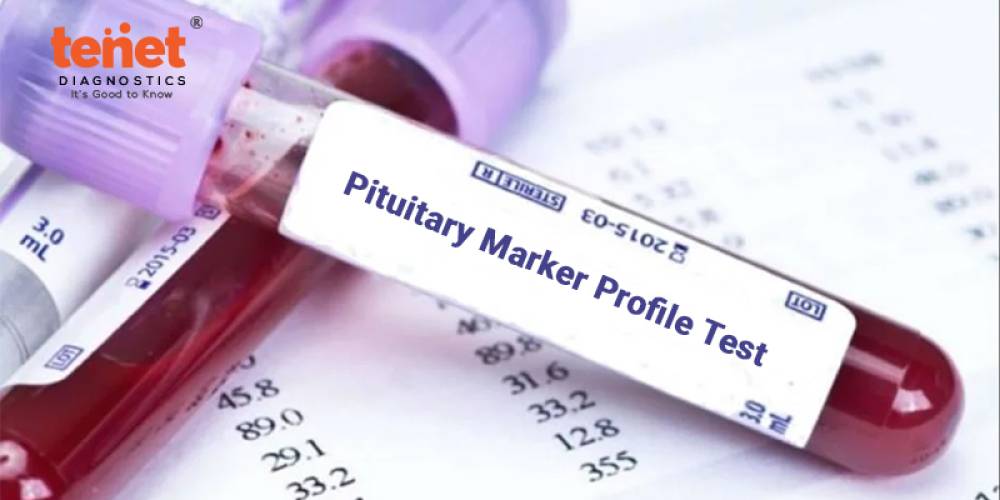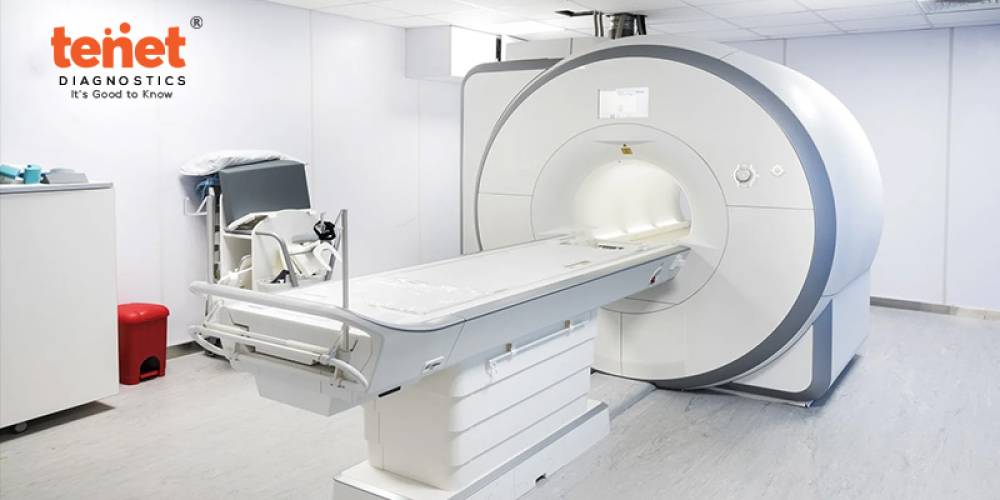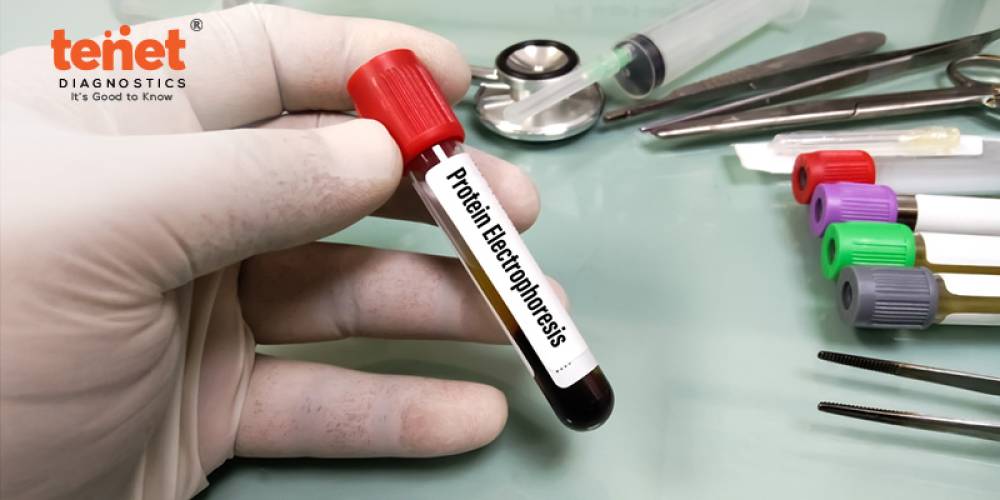The pituitary gland produces several hormones, including Human Growth Hormone (HGH), Adrenocorticotropic Hormone (ACTH), Follicle-Stimulating Hormone (FSH), Luteinizing Hormone (LH), Prolactin, and Thyroid-Stimulating Hormone (TSH). A blood test called the Pituitary Marker Profile test measures these hormone levels.
These hormones are essential for many body processes, such as metabolism, growth, reproduction, and stress tolerance. Hormonal imbalances, specific types of cancers, pituitary abnormalities, and other health concerns can all be linked to abnormal levels of these hormones. Your doctor can use this test to learn important details about your hormonal health and make treatment recommendations.
Why Do Hormone Imbalances Result from Pituitary Tumors?
Most pituitary tumors diagnosis, also known as functional pituitary adenomas, emit hormones that cause the body to produce an excess of a certain hormone. These excessive levels create the overproduction of other hormones, which may be the real reason behind the symptoms a patient is presenting, in what is referred to as a cascading effect. For instance, clinicians look for abnormally high levels of both the hormone cortisol and ACTH when diagnosing an ACTH-secreting tumor.
To undergo pituitary blood test in Hyderabad, visit Tenet Diagnostics which offers top notch services at affordable prices.
The function of the pituitary gland is often evaluated using a variety of pituitary marker profile assays. Several of these pituitary function test consists of:
1. Pituitary Hormone Panel
Growth hormone (GH), adrenocorticotropic hormone (ACTH), thyroid-stimulating hormone (TSH), luteinizing hormone (LH), follicle-stimulating hormone (FSH), and prolactin are among the hormones generated by the pituitary gland that are measured by the pituitary hormone panel. It can determine deficiencies or deficiencies of hormones and aid in the assessment of pituitary function overall.
2. Dynamic Endocrine Testing
In this method, the release of pituitary hormone is stimulated or suppressed by means of certain drugs or actions. The corticotropin-releasing hormone (CRH) stimulation test, the insulin tolerance test (ITT), and the thyrotropin-releasing hormone (TRH) stimulation test are a few examples. These tests offer important insights into the regulation of hormones and aid in evaluating the pituitary gland's responsiveness to external stimuli.
3. Pituitary MRI
Magnetic resonance imaging (MRI) is a non-blood test used to view the pituitary gland's structure and identify any abnormalities, such as tumors or cysts. To identifying pituitary problems and directing subsequent treatment, this imaging test is essential.
4. Insulin-like Growth Factor 1 (IGF-1) Test
The pituitary gland secretes GH, which causes the hormone IGF-1. Assessing IGF-1 levels can assist diagnose growth hormone problems such acromegaly and growth hormone deficiency, as well as indirectly provide information regarding GH production.
5. ACTH Stimulation Test
Examining the adrenal glands' reaction to adrenocorticotropic hormone (ACTH) stimulation is the purpose of the ACTH Stimulation Test. It assists in the diagnosis of insufficient adrenal gland production and in distinguishing primary from secondary adrenal diseases. The pituitary gland secretes ACTH, which induces the adrenal glands to release cortisol.
Understanding the Pituitary Marker Profile Test Result:
|
Gender |
Age groups |
Value |
|
UNISEX |
All age groups |
2 - 17 ng/ml |
|
MALE |
All age groups |
0.3 - 10 mIu/ml |
|
FEMALE |
All age groups |
0 - 4mIu/ml (Before puberty) and 4.7 - 21.5mIu/ml (While menstruating) |
|
UNISEX |
All age groups |
4.5 - 11.7 mcg/dl |
|
UNISEX |
All age groups |
0.3 - 5U/ml |
|
UNISEX |
All age groups |
9 to 52 pg/mL |
|
UNISEX |
All age groups |
6 - 23 mcg/dl at 8 a.m |
|
MALE |
All age groups |
0.01 - 0.97 ng/ml |
|
FEMALE |
All age groups |
0.01 - 3.61 ng/ml |
|
UNISEX |
All age groups |
275 - 295 mosm/kg |
|
UNISEX |
All age groups |
1.42 - 15.4MIU/ML
|
Benefits Of Undergoing Pituitary Marker Profile Test:
A pituitary marker profile test has several important advantages.
1. Early detection of pituitary disorders
The early detection of pituitary problems, including hypopituitarism, hyperpituitarism, and pituitary tumors, is made possible by using pituitary marker profile tests, which can identify abnormalities in pituitary hormone levels. Prompt intervention and care are made possible by early detection, which may help to avoid problems and enhance treatment results.
2. Comprehensive Assessment
By measuring the hormones produced by the pituitary, including growth hormone, prolactin, luteinizing hormone, follicle-stimulating hormone, thyroid-stimulating hormone, and adrenocorticotropic hormone, these tests offer a comprehensive assessment of pituitary gland function. Healthcare professionals can better comprehend the general hormonal balance and pinpoint specific shortages or excesses with the aid of this thorough assessment.
3. Treatment Planning Guidance:
Based on the findings of pituitary marker profile testing, medical professionals create individualized treatment regimens that are suited to each patient's unique hormonal requirements. Treatment options could include hormone replacement therapy, medicines to reduce hormone production, or surgery to remove pituitary tumors, depending on the results.
4. Monitoring Pituitary Function
Regular pituitary marker profile testing enables continuous monitoring of pituitary function and medication efficacy in patients with known pituitary diseases or receiving therapy. Healthcare professionals can preserve general health and optimize hormonal balance by monitoring patients' hormone levels over time and modifying treatment plans accordingly.
5. Detection of Pituitary cancers
Imaging investigations like magnetic resonance imaging (MRI) in conjunction with pituitary marker profile tests facilitate the detection and characterization of pituitary cancers. For prompt intervention and management—which may include medication, radiation therapy, or surgical resection—early diagnosis of malignant tumors is essential.
Who Needs To Undergo Pituitary Marker Profile Test?
A pituitary marker profile test may be beneficial for several people, including:
1. People with Pituitary Dysfunction Symptoms
To determine pituitary gland function, a pituitary marker profile test may be necessary for those exhibiting symptoms suggestive of pituitary disorders, such as infertility, fatigue, changes in vision, headaches, irregular menstruation, or mood swings.
2. Patients with Known Pituitary abnormalities
As part of continuing surveillance or treatment review, people with known pituitary abnormalities—such as hypo- or hyperpituitarism, pituitary tumors, or illnesses impacting hormone production—may have their pituitary marker profiles tested.
3. Patients with Suspected Endocrine Disorders
To evaluate overall endocrine function, patients suspected of having endocrine disorders, such as thyroid disorders, adrenal disorders, or imbalances in reproductive hormones, may need to have a pituitary marker profile tested. This is because the pituitary gland controls the secretion of numerous hormones that impact other endocrine glands.
4. Those Being Assessed for Growth or Puberty Disorders
Pituitary marker profile testing may be used to assess growth hormone and other pituitary hormone levels in children and adolescents experiencing growth retardation, delayed puberty, or precocious puberty. This testing can help with diagnosis and treatment planning.
5. Patients with Unexplained Symptoms or Health Issues
Pituitary marker profile testing may be necessary to investigate underlying hormonal imbalances or pituitary abnormalities in people who are having unexplained symptoms or health issues that may be related to pituitary dysfunction.
Final Words
In conclusion, everybody who is worried about their hormonal health and wellbeing needs to understand the Pituitary Marker Profile Test. The importance, varieties, and advantages of this diagnostic tool for assessing pituitary gland function have all been covered in this extensive guide.
The pituitary gland produces and regulates a variety of hormones, and the Pituitary Marker Profile Test provides important information on these processes. This test offers a comprehensive assessment of the central regulation of the endocrine system, including measuring growth hormone levels and analyzing thyroid, adrenal, and reproductive hormone function.







